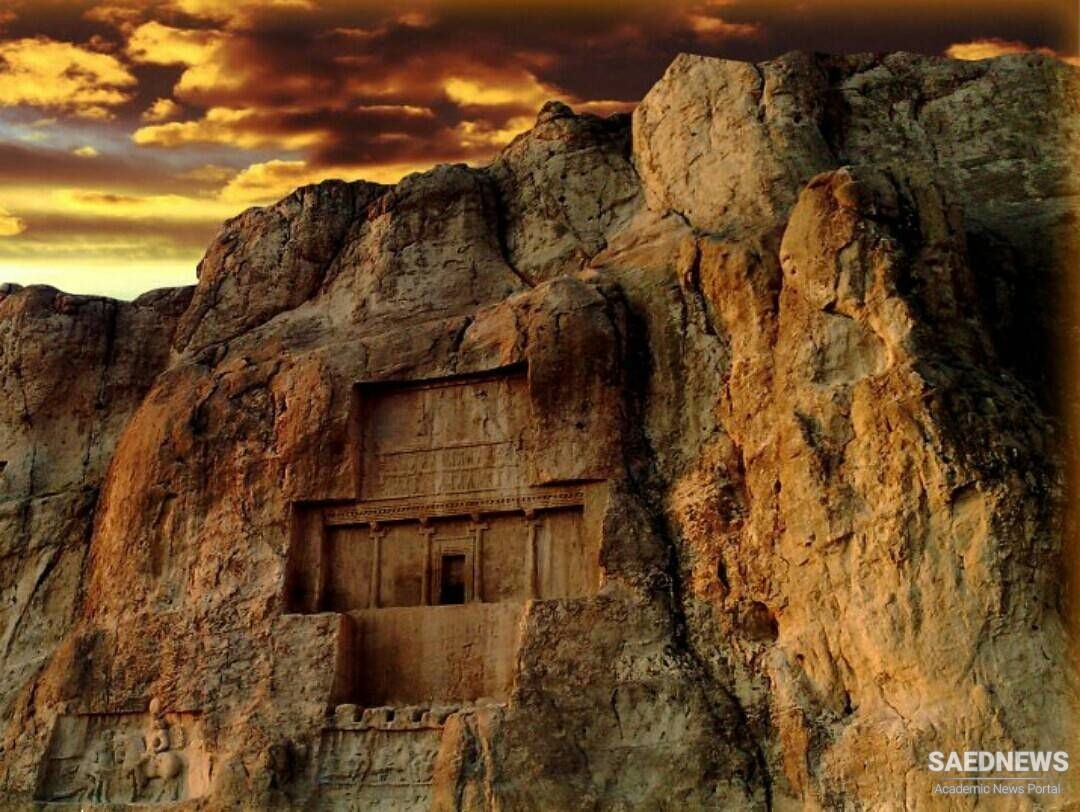The purpose of the established order is to provide happiness for man and guide his life so that he may be among Ahuramazda’s chosen after death. The Old Avesta itself is fundamentally the poet-sacrificer’s oral announcement of his knowledge, praise of Ahura Mazda and his work, and blame, that is, denunciation of those on the side of (possessed by) the Lie. Among the technical terms for the god’s announcements, the most common is the simple word “speak,” but there is also “command, instruct, ordain” (sah-) and “announce” (sangh-) which is used about both the sacrificer and Ahura Mazdâ His announcements are, in fact, by themselves capable of combating the Lie and its evil and protect all living beings (2.44.14), And it is by his announcements that the sacrificer will bring back dawn once again (2.46.3). The equivalent of Avestan sangh- in Old Persian is thangh-, the standard term for the king’s statement or announcement: King Darius announces (thati) ... These statements of the Achaemenid kings announce their knowledge, praise of Ahuramazda and his work, blame of the followers of the Lie, and his purpose, and thus serve to uphold the Order of the land. By his announcement, the king states his identity and his side in the battle against evil. Thus, in the Bisotun inscription, we have, put simply: • the king’s self-presentation by stating his name and his ancestry (cf. DNa 8-15). • a statement about the king’s appurtenance to Ahura Mazda, who bestowed the royal command upon him. • a statement about the king’s activities: supporting the work of Ahuramazdâ and combating the forces of the Lie. While Darius’s statement about his identity (I am Darius, the great king, etc.), Darius’s opponents all present themselves falsely, as in DB 1.77-78: And a certain Babylonian, Nidintu-Bêl, son of Ainaira, rose up in Babylon. He lied to the people: “I am Nebuchadrezzar, the son of Nabonidus.” Darius states his appurtenance to Ahuramazdâ in no dubious terms in DSk: King Darius announces: Ahuramazdâ is mine, I am Ahuramazdâ’s. I sacrificed to Ahuramazdâ. May Ahuramazdâ bear me aid! Here the relationship between Ahuramazdâ and the kings is portrayed as one of possession between god and his worshipper/sacrificer, in which Ahuramazdâ in return for worship/sacrifice assists the king in maintaining his land. It is difficult to state more explicitly the function of the sacrifice and the mutual indebtedness of the two participants: the sacrificer and the divinity (see below on the Ritual). Throughout his inscriptions, Darius assures us that he was an active participant in the battle against the Lie (cf. DB 1.34-35, DB 4.33-40), and he regards his opponents as having been bewildered and deceived by the Lie and so become its minions. Being on the side of the Lie also manifests itself in the worship of the wrong gods, the daivas. Darius and Xerxes both used the proscription of the worship of wrong gods (daiva) as a means of subduing and punishing local rebellions, and Darius explicitly prescribes punishment for the evil-doer (e.g., DB 4.67-69). The king represents himself as a just king, however, treating everybody equally and justly (DB1.20-22, DNb 16-24), and he rewards those who behave according to the Law (dâta) he has laid down (DB 1.23, cf. OAv. 1.28.10), but punishes those who do not. Thus, the kings fulfill their duties to Ahura Mazdâ by upholding his law and pursuing and punishing those who do not, who are liers and rebels or foreigners who worship the wrong gods, and his advice to other kings is to behave in the same manner (DB 4.61-65). The basic acceptable behavior consists in speaking only what was real, true (hashiya), behaving with rectitude (ershta), and doing what is straight (rasta), as opposed to lying (durujiya-), doing wrong or erring (vinathaya-), behaving crookedly (zura kar-), deviously or erratically (mitha),. In addition, the king is to protect the land from foulness, the evil stench of the Lie (gasta). Abiding by the Law, that is, by what has been established as true and correct behavior, also means not leaving the straight path in rebellion against the authorities (DNa 58-60). The man who behaves well, that is, according to the established law of Ahuramazda, will receive a reward both in life and in afterlife. The goal of man is to act in such a way that he becomes happy (shiyata) while alive (which is what Ahuramazda intended for him) and at one with Order (artavan) when dead (DB 5.18-20, XPh, and cf. Y.71.13-16). The king obviously performs god’s will on earth, and his achievements in the world of the living parallel and match those of Ahura Mazda in the world of thought. There is no explicit statement to this effect in the inscriptions nor in the artistic representations, but it is implicitly clear.


 Aramaiti the Daughter of Ahura Mazda
Aramaiti the Daughter of Ahura Mazda














































